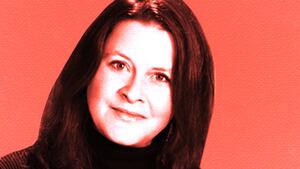Four students at Wheaton College filed a federal free-speech lawsuit against the City of Chicago this week, claiming that it violated the Constitution when it prohibited a group of evangelists from speaking and passing out fliers near “The Bean” statue at the popular Millennium Park.
The three sophomores and one junior who filed suit—Matt Swart, Jeremy Chong, Gabriel Emerson, and Caeden Hood—are all members of the Chicago Evangelism Team at the 2,500-student, Christian liberal arts school. The team is sponsored by the college’s Office of Christian Outreach.
“An essential part of Christianity is sharing the gospel,” Chong told The Chicago Tribune, which first reported the lawsuit, on Thursday.
The 24.5-acre park is the most popular tourist destination in the midwest, with about 25 million annual visitors, and was often used by the team to “proclaim the gospel in the city of Chicago to whomever we find there, pray with and listen to all those we meet and be a light and a witness for Christ,” according to the lawsuit.
But six members of the team were halted by park security in December 2018 while “open air preaching,” the complaint claims.
Park officials told the students that they were “soliciting the public to subscribe to their beliefs and therefore in violation of a Chicago ordinance which prohibited solicitation on the park sidewalk between Randolph Street and Roosevelt Street,” the lawsuit states.
Over the next several months, “the students and other evangelists continued to face hostility and opposition from park employees frustrating their ability to preach or distribute free religious literature,” the complaint contends. In one case, students say they were told by a park official “they could not discuss religion in the park.” That official allegedly “ordered the students to leave the park if they wanted to talk about religion.”
In April, the city’s Department of Cultural Affairs and Special Events officially divided the park into 11 areas, or “rooms,” and on its website announced that it would ban “the making of speeches and passing out of written communications” in 10 of them.
The rules, which were updated in August, “contain unconstitutional provisions which unduly restrict speech within a traditional public forum,” the lawsuit claims.
The rules essentially restrict anyone from making speeches or passing out written materials in the park, including near the world-famous Cloud Gate statue, commonly known as “The Bean,” except for the area of Wrigley Square and the Millennium Monument, in the northwest corner of the park, according to the complaint.
“The Bean is one of the highest tourist attractions in the United States ... that’s where you want to get your message out,” the students’ attorney, John Mauck, told the Tribune.
The 39-page federal lawsuit was filed on Wednesday in the U.S. District Court in the Northern District of Illinois and claims the city violated their constitutional rights to freedom of speech and free exercise of religion.
“This isn’t just about evangelists,” Mauck said. “This is for politicians campaigning, political activists and whoever else wants free speech.”
“This case is about keeping secure the liberty of public citizens, in general, and the four student plaintiffs, specifically, to freely engage in speech activities at Millennium Park—a public park and traditional public forum,” the complaint states. “The right of citizens to discuss matters of public importance, to engage with other citizens, and to hear encouraging or challenging opinions is a bedrock of the first amendment, which has found its fullest expression in the context of public forums.”
Through the suit, the students are seeking to forbid the city and its employees from enforcing rules that “prohibit or unduly restrict the students’ speech and religious activities within a traditional public forum,” unspecified damages for violating their rights, and reimbursement of attorneys fees and expenses.
Despite the fact that he was forwarded a copy of the complaint, Bill McCaffrey, a spokesman for the city’s legal department, told The Daily Beast on Thursday: “We have not yet received this suit and therefore cannot comment specifically on the litigation, however, the new rules protect First Amendment rights while also respecting the rights of patrons to use and enjoy the park.”








